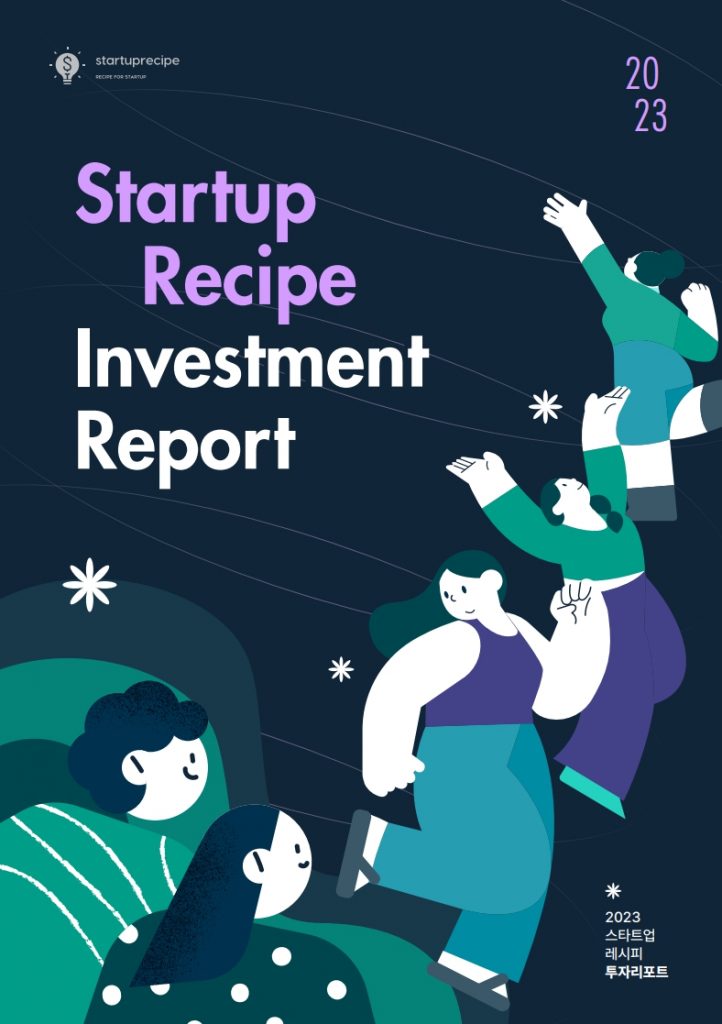
According to the “Startup Recipe Investment Report 2023” released by Startup Recipes, a startup-focused media operated by Media Recipe, the amount of investment in domestic startups has remained above $7.5233 billion (KRW 10 trillion) for three consecutive years, including $9. 0522 billion (KRW 12.0286 trillion) in 2021 and $8.1456 billion (KRW 10.82715 trillion) in 2022, but in 2023, the amount of investment fell by 51% year-on-year to $4.372 billion (KRW 5.81109 trillion). The number of investments also fell by 34% year-on-year to 965.
By sector, each investment reached more than the $ 752.332 million( KRW 1 trillion) mark, with consumer tech at $822.468 million (KRW 1.09306 trillion), fintech at $862.604 million (KRW 1.1464 trillion), and software at $775.433 million (KRW 1.03055 trillion). Almost all sectors saw a year-on-year decline of more than half, but consumer tech and software remained the top two from 2020, while fintech made a strong showing, overtaking bio/healthcare from third place the previous year.
During the investment drought, companies that had hired people with large amounts of money pulled during the liquidity boom were forced to restructure, and many companies that could not survive without investment learned the lesson that the key is to nurture the core of the company. In this respect, the increase in the number of companies reporting a turnaround in the second half of the year is a positive sign of the impact of the investment drought on the startup ecosystem.
In 2023, only two unicorns became public companies, FADU and APR. However, FADU’s share price has fallen significantly due to poor performance, so it was expected that the bar for a technology special listing would be raised. In addition, the recent decline in corporate valuations would have resulted in many unicorns being valued at less than $752.332 million (KRW 1 trillion), and a reassessment of unicorn valuations is needed. In terms of mergers and acquisitions, the total number of deals in the first half of the year was down 37% year-on-year, and the number of deals in the fourth quarter was down 66% compared to the first quarter.
The policy finance and financial sectors were the most active in the slowing investment environment. KB Investment and Korea Investment Partners were active, while the Korea Development Bank (KDB) and the Industrial Bank of Korea (IBK) participated in several late-stage Series B investments to support growth start-ups. Korea Technology Finance Corporation and Korea Credit Guarantee Fund were active in early-stage growth. Korea Investment Holdings, Hana Financial Group and Shinhan Financial Group were active in the financial sector. In terms of early-stage investments, CNTTECH was the overwhelming leader in terms of the number of investments, followed by Bluepoint Partners, FuturePlay and other early-stage players such as Korea Investment Accelerator and Banks Foundation for Young Entrepreneurs (D.CAMP). Among global investors, Altos Ventures was the most active.
The report also surveyed 15 leading domestic and international investors on the investment environment. According to the report, more than a majority of investors believe the investment environment will be better in 2024 than in 2023, with 60% saying they will increase their investments. However, 46.7% believe the investment market will recover in the second half of 2024 and 40% believe it will recover in 2025 or later.
“The year 2023 was a year of lessons for many startups as they took a wait-and-see approach to investment due to complex economic risks at home and abroad, such as high-interest rates, and adjusted their valuations during the market downturn,” said Seok Won Lee, CEO of Media Recipe. “We hope this Investment Report 2023 will help them reflect on the year and prepare for the startup investment ecosystem in 2024.”






Leave a Comment